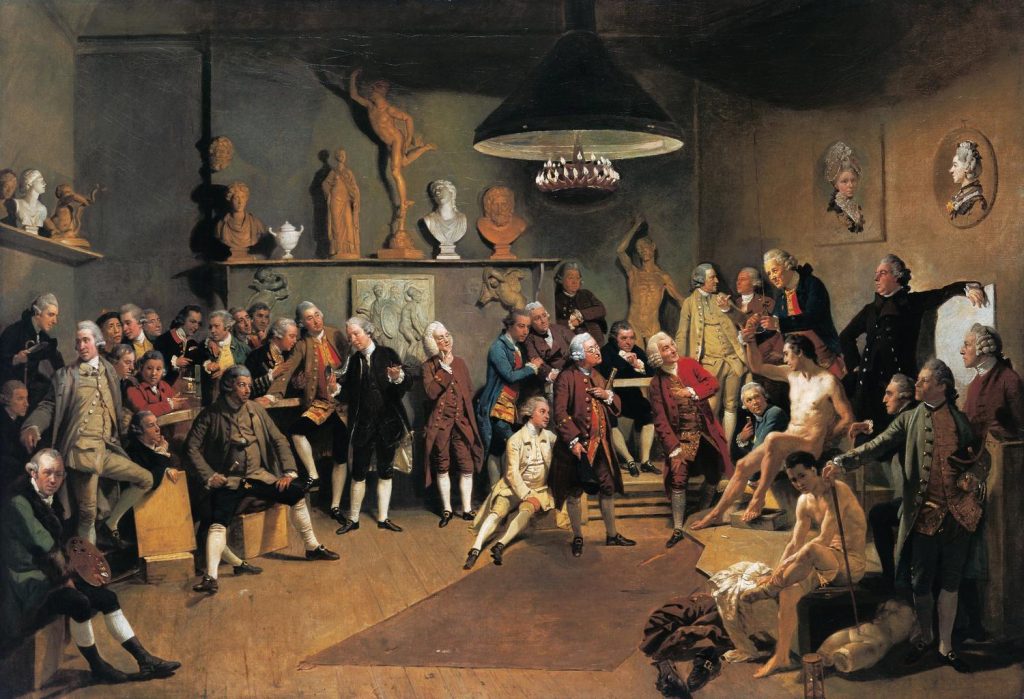The eighteenth century marked a profound transformation in the social status of artists. No longer seen merely as artisans, they became “educated” men who mastered theory as well as practice, embodying the ideals of the Enlightenment. The Royal Academy of Arts in London, founded in 1768, epitomized this new model: a professionalized institution that elevated art through intellectual discourse, classical study, and moral refinement. Johann Zoffany’s 1772 painting The Academicians of the Royal Academy perfectly captures this shift. In it, male artists appear as cultivated gentlemen, gathered around a live nude model, the central practice of academic training and a symbol of artistic mastery.
However, the same painting reveals the gender boundaries of this supposedly enlightened world. The Royal Academy counted two female founding members, Mary Moser and Angelica Kauffman, yet they were barred from studying the nude, the foundation of academic art, because of their sex. Zoffany could not portray them in the scene; instead, he reduced their presence to two dim portraits hanging on the wall, transforming the women artists into mere “objects of art.” Their exclusion visually reinforced a hierarchy that accepted women as muses or allegories but rarely as creators.
Kauffman’s own Self-Portrait Hesitating Between the Arts of Music and Painting (1775) responds to this contradiction. In it, she depicts herself choosing Painting over Music, an allegory of her professional identity and intellectual commitment. Yet, her body and expression remain idealized, echoing the very aesthetic conventions that constrained her. Her image oscillates between self-assertion and objectification, between being the artist and being the artwork. This tension encapsulates the ambiguous place of women in the art world of the Enlightenment: visible as beauty, invisible as creators.
Serra Húnter Fellow of Sociology at Universitat Rovira i Virgili.
Former DAAD-Gastprofessorin at Julius-Maximilians-Universität Würzburg


